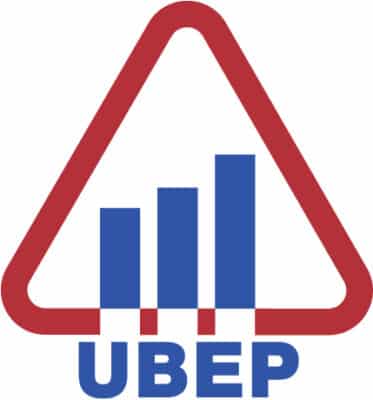

The Master in Principles and Practice of Systemic Reviews and Meta-Analysis in the Biomedical Field, prepares professionals working, or intending to work, in the biomedical field, to design, conduct and analyse a systemic review for evidence-based healthcare questions, according to a methodological and processing reproducibility factor.
This Level-2 Master is provided online, on-demand, to allow students to follow the lessons at their most convenient time.
The Master in Principles and Practice of Systemic Reviews and Meta-Analysis in the Biomedical Field comprises 5 modules. Since fact synthesis is playing an increasingly important role in research, clinical practice and healthcare policy decisions, an essential condition to implement the results deriving from a systemic review and subsequent meta-analysis is their reproducibility. Therefore, this course covers classic systemic review methodology topics, supported by innovative text mining and machine learning applications. Meta-analysis is treated by giving ample space to the applicational aspects, from basic methods to multilevel, multivaried models and to network meta-analysis. The R software will be used.
The quality of the empiric evidence is classified through ethical principles of quantification, and real work evidence constructs. Reproducibility is dealt with by following its taxonomy, from technical reproducibility, to methodological and scientific aspects. Literate programming is covered in R Markdown and through application examples.
The Master in Principles and Practice of Systemic Reviews and Meta-Analysis in the Biomedical Field is mainly addressed to graduates in medical, biological, pharmacological, mathematics and statistics sciences. The Master identifies the ideal candidates to guide in the implementation of solid and reproducible systemic reviews in professionals already working, or intending to work, in the biomedical field.
The Master will provide students with application competences of growing relevance, for all medical practice and research sectors, and its purpose is training professionals with broad systemic review planning, conduction and analysis skills. The knowledge acquired during the Master are relevant for the further specialization of healthcare professionals already working, and to define technical-quantitative profiles to work in the healthcare sector, in biomedical research and in CROs.
The Master in Principles and Practice of Systemic Reviews and Meta-Analysis in the Biomedical Field will include 5 modules, available online and on-demand, as specialized below:
Module 1 – SYSTEMIC REVIEW METHODOLOGY
This module will convey the methods and tools to generate a systemic review, from drafting and registering the protocol, to reporting and critical evaluation.
Module 2 – TEXT-MINING AND MACHINE LEARNING IN SYSTEMIC REVIEWS
Using of text mining tools and machine learning algorithms to conduct systemic reviews is becoming an increasingly popular approach to optimize human and financial resources, and the time required to complete such reviews. This module shows the most promising approaches in literature, compared to screening de novo and review updates and extensions, with application of open-source tools in R.
Module 3 – META-ANALYSIS METHODOLOGY 1
This module provides an introduction to the terms and methodological concepts involved in this fact synthesis approach. The crucial points covered by this module are effect measurements, meta-analysis introduction, and management of the heterogeneity component between different studies. It also shows practical examples and applications.
Module 4 – META-ANALYSIS METHODOLOGY 2
This module covers advanced meta-analysis method aspects. The topics covered include multi-varied/multi-level meta-analysis models, Bayesian meta-analysis and meta-analysis, Frequentists and Bayesian Networks. It also shows practical examples and applications.
Module 5 – REPRODUCIBILITY OF RESEARCH
This module covers a mix of topics connected to reproducibility from a quantitative and processing standpoint – such as selective interference and literate programming – and from an epidemiology and philosophy of science point of view.
The general ranking of merit will be published on the Italian page of this Master according to the timing provided in the Call.
Information
FAQ
Every module comprises 4 weeks of asynchronous lessons, with a week of pause between the following module. Interaction between students and professors will be frequent, and facilitated through Moodle Forum. R is the reference software, with a simplified interface for the topics that allow it. Video lessons will be held between November and May, with periodical homework to attest the knowledge acquired. Homework is also provided on-demand. The project work before the final discussion will be drafted between June and July, even on cases promoted by students, in agreement with the tutor. The project work will also be presented online, on the Zoom platform.
-
Exemption for Students with Disabilities – No registration fee is required for candidates with certified disabilities and an assessed disability level between 66% and 100%, or for those holding certification under Law no. 104. These students are only required to pay the pre-enrollment fee, insurance, and stamp duty.
-
PA110 e Lode Discount – Employees of the Public Administration enrolling in the Master’s program are entitled to a €330 discount on the second installment of the registration fee.
-
Enrollment for University Staff – University staff may enroll in excess of the official quota to support continuous and lifelong learning. The enrollment fee applies to technical and administrative staff who meet the admission requirements for the program; upon completion, they may obtain the corresponding Diploma or Certificate. Those who do not meet the admission requirements may be admitted as auditors and will receive a certificate of attendance.
-
Registration Fee for Auditors – The registration fee for auditors is equal to 50% of the full course registration fee. At the end of the course, auditors who meet the minimum attendance requirement may be awarded a certificate of participation by the Course Director.
Even though the course is online, attendance is mandatory. However, since the video-lessons are pre-recorded, and they can be watched 24/7, it will be very easy to stay in-course. The Academic Office and professors are willing to cater to any student with heavy commitments or intense work schedules.
No, there won’t be an internship. There will be a final project work that can be completed also on the student’s workplace analysis and data. The topic will be agreed with the course’s professors.

